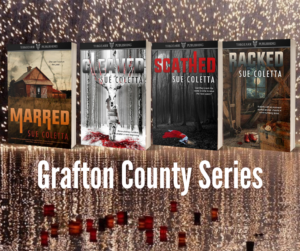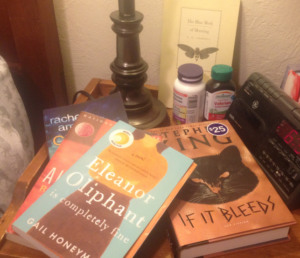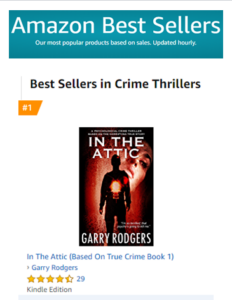Banned Books Week
Terry Odell

We’re smack dab in the middle of Banned Book Week—Sept 22-28.
I think the Kill Zone is a “Banned Free Zone” but it never ceases to amaze—and frustrate—me that people are determining what others can read.
My parents were liberal when it came to my reading choices, although they had a friend who wrote porn under a variety of pseudonyms, and they’d buy his books to support him. Those, I discovered later, they’d kept off the house’s bookshelves. Had I found one and read it, I’m not sure what they’d have said.
Barnes and Noble has a Banned Book section on its website, as well as in some stores. Titles include:
Animal Farm, by George Orwell
Their Eyes Were Watching God, by Zora Neale Hurston
Where the Wild Things Are, by Maurice Sendak
1984, By George Orwell
The Catcher in the Rye, by J.D. Salinger
Lord of the Flies by William Golding
The Handmaid’s Tale, by Margaret Atwood
Of Mice and Men, by John Steinbeck
Fahrenheit 451, by Ray Bradbury
To Kill a Mockingbird, by Harper Lee
The Giver, by Lois Lowry
The Hunger Games, by Suzanne Collins
Midnight in the Garden of Good and Evil, by John Benedict—
And the list goes on.
 The American Library Association, ALA, documented 4,240 unique book titles targeted for censorship in 2023—a 65% surge over 2022 numbers—as well as 1,247 demands to censor library books, materials, and resources. Pressure groups focused on public libraries in addition to targeting school libraries. The number of titles targeted for censorship at public libraries increased by 92% over the previous year, accounting for about 46% of all book challenges in 2023.
The American Library Association, ALA, documented 4,240 unique book titles targeted for censorship in 2023—a 65% surge over 2022 numbers—as well as 1,247 demands to censor library books, materials, and resources. Pressure groups focused on public libraries in addition to targeting school libraries. The number of titles targeted for censorship at public libraries increased by 92% over the previous year, accounting for about 46% of all book challenges in 2023.
 According to PEN America:
According to PEN America:
“This 2022–23 school year, efforts to remove books expanded to sweep up a wide swath of literature and health-related content. Of the 3,362 instances of books banned in the 2022–23 school year, certain themes, formats, and identities recur:
- 48 percent include themes or instances of violence and abuse (n =1,620). Of note, within this category, 834 instances are books that include episodes of sexual assault, which is 25 percent of all instances of books banned.
- 42 percent cover topics on health and wellbeing for students (n = 1,402). This includes content on mental health, bullying, suicide, substance abuse, as well as books that discuss sexual wellbeing and puberty.
- 33 percent detail sexual experiences between characters (n = 1,110).
- 30 percent include characters of color or discuss race and racism (n = 1,003)
- 30 percent LGBTQ+ characters or themes (n = 997). Of note, within this category, 205 instances are books that include transgender characters, which is 6 percent of all instances of books banned.
- 29 percent include instances or themes of grief and death (n = 980). This includes books that have a character death or a related death that is impactful to the plot or a character’s emotional arc.”
Facebook is full of graphics, or “memes” protesting banning books. Is it doing any good? Judging from the rising numbers of challenged books, I have my doubts. I haven’t seen any reports of actual book burnings, which might be the only positive piece of information I can include today.
 If I may be so bold, I have a new release dropping on October 3rd, and I don’t think anyone will find cause to challenge or ban it. It’s available for preorder now. Read more about it here.
If I may be so bold, I have a new release dropping on October 3rd, and I don’t think anyone will find cause to challenge or ban it. It’s available for preorder now. Read more about it here.
The floor is yours, TKZers.
**New! Find me at Substack with Writings and Wanderings
How can he solve crimes if he’s not allowed to investigate?
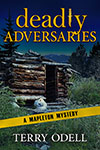 Gordon Hepler, Mapleton’s Chief of Police, has his hands full. A murder, followed by several assaults. Are they related to the expansion of the community center? Or could it be the upcoming election? Gordon and mayor wannabe Nelson Manning have never seen eye to eye. Gordon’s frustrations build as the crimes cover numerous jurisdictions, effectively tying his hands. Available now in ebook, paperback, and audio.
Gordon Hepler, Mapleton’s Chief of Police, has his hands full. A murder, followed by several assaults. Are they related to the expansion of the community center? Or could it be the upcoming election? Gordon and mayor wannabe Nelson Manning have never seen eye to eye. Gordon’s frustrations build as the crimes cover numerous jurisdictions, effectively tying his hands. Available now in ebook, paperback, and audio.
 Like bang for your buck? I have a new Mapleton Bundle. Books 4, 5, and 6 for one low price.
Like bang for your buck? I have a new Mapleton Bundle. Books 4, 5, and 6 for one low price.
 Terry Odell is an award-winning author of Mystery and Romantic Suspense, although she prefers to think of them all as “Mysteries with Relationships.”
Terry Odell is an award-winning author of Mystery and Romantic Suspense, although she prefers to think of them all as “Mysteries with Relationships.”







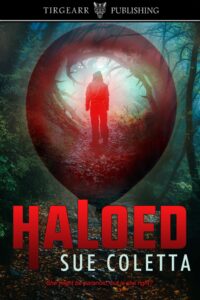 She may be paranoid, but is she right?
She may be paranoid, but is she right?



 To master the art of writing we need to read. Whenever the words won’t flow, I grab my Kindle. Reading someone else’s story kickstarts my creativity, and like magic, I know exactly what I need to do in my WIP.
To master the art of writing we need to read. Whenever the words won’t flow, I grab my Kindle. Reading someone else’s story kickstarts my creativity, and like magic, I know exactly what I need to do in my WIP.
